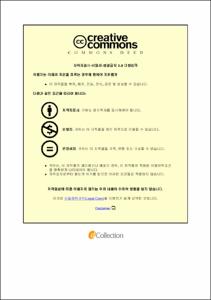중소기업컨설팅지원사업의 컨설팅 수행특성이 컨설팅 수용행동에 미치는 영향에 관한 연구
= A Study on the Consulting Performance of SME Consulting Support Project on Acceptance Behavior: Focusing on Voluntary / Involuntary Participation
- Type
- Thesis
- Alternative Title
- 자발적 / 비자발적 참여를 중심으로
- Advisor
- 유연우
- Department
- 대학원 스마트융합컨설팅학과
- Issued Date
- 2019
- Publisher
- 한성대학교 대학원
- Keyword
- 중소기업컨설팅지원사업; 컨설팅 수행특성; 컨설팅 수용행동; 자발적 참여 / 비자발적 참여; 정교화가능성모델; 기술수용모델(TAM)
- Appears in Collections:
- 지식서비스&컨설팅학과 > 1. Thesis
- Files in This Item:
-
-
Download
 000001896990.pdf
기타 데이터 / 1.17 MB / Adobe PDF
000001896990.pdf
기타 데이터 / 1.17 MB / Adobe PDF
-
Items in Repository are protected by copyright, with all rights reserved, unless otherwise indicated.